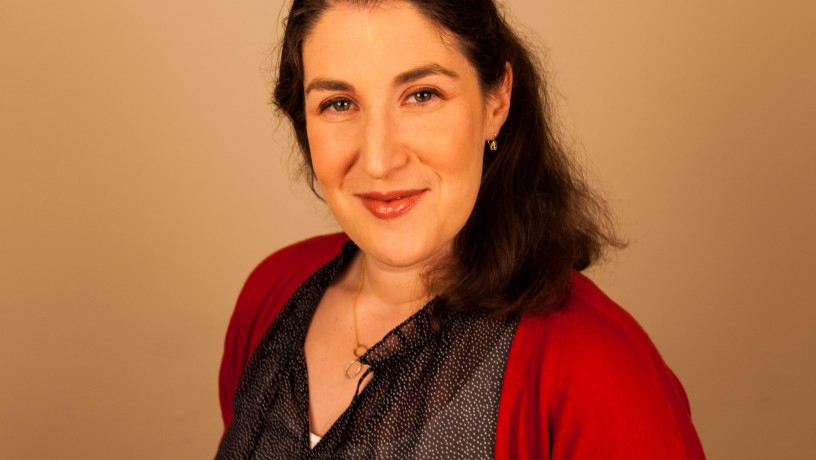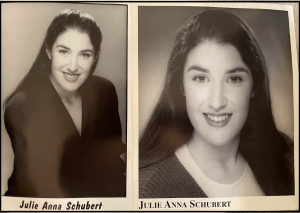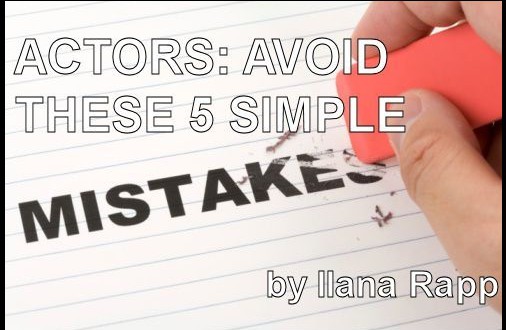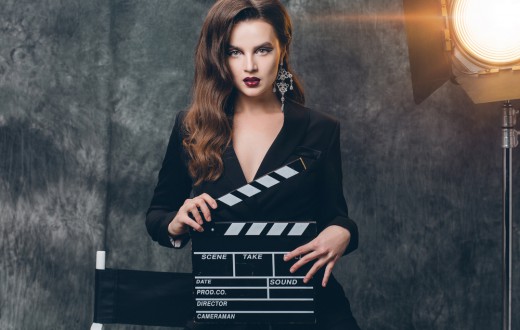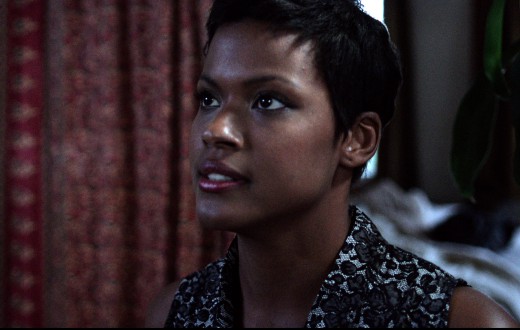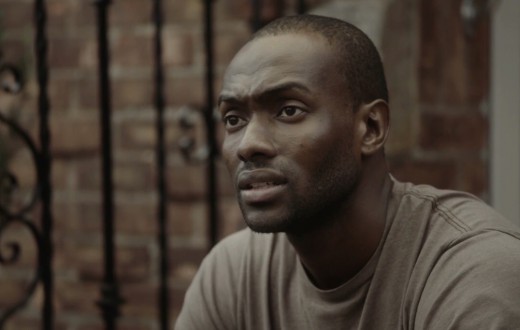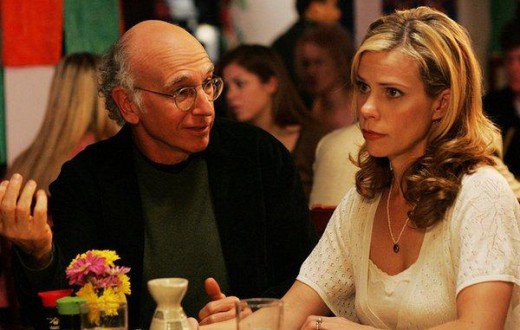Julie Schubert, an Emmy Award-winning casting director known for her exceptional ability to recognize talent and pair actors with roles that bring characters to life, brings us great insight as to her casting process. With a remarkable eye for detail and a deep understanding of the craft, Schubert has cast for some of the most acclaimed shows, including “Under the Bridge”, “House of Cards”, “Daredevil”, “The Diplomat”, “Manifest” and one of my personal favorites, “The Devil Wears Prada”.
In this DirectSubmit / NYCastings interview, we dive into Schubert’s expertise in guiding actors to make the bold choices that define their performances. For actors, the audition room is a place to showcase their interpretation of a character, but it’s also a moment to reveal their creative instincts. Julie Schubert’s insight into what makes an audition stand out—and how she navigates the delicate balance between character requirements and an actor’s unique approach—offers invaluable lessons for performers at every level.
Let’s explore Julie Schubert’s casting philosophy, the art of auditioning, and how actors’ choices can make all the difference in the world of entertainment.
You were trained by the queens of casting, Juliet Taylor and Ellen Lewis. How did you meet them? What was the most valuable lessons you learned from them?
THEY ARE THE QUEENS! I love that you read for Juliet [Ilana was a child actor] – she is truly the best of the best and I feel so fortunate to have had the opportunity to work for her and learn from her. Same with Ellen Lewis – I couldn’t have asked for a better casting upbringing. These are powerful, creative, intelligent women who are truly brilliant at what they do and I work and strive daily to hopefully one day be as good.
I met Ellen first; I interviewed for an assistant position on the film “Imaginary Heroes” that she and Jen Euston were casting together. I didn’t get the job, but I must have left enough of an impression that she shared my resume with Juliet Taylor. I met with Juliet for an assistant position on Woody Allen’s “Melinda and Melinda” and was hired! It was fast and furious and exciting.
A year or so later, Juliet and Ellen partnered on the Sidney Pollack film, “The Interpreter.” After we wrapped, Juliet told me she was taking a step back from active casting and Ellen brought me on as her assistant for “The Devil Wears Prada” and “The Departed.” And it went like that for three or four years.
When you are fortune enough to work for people like Juliet and Ellen, you do anything you can to absorb as much as possible. Quietly observing. They were always open to questions and would take time to explain their points of view but I also found that just watching them do their jobs was almost more important in many ways. I learned to never leave a stone unturned. I learned the importance of organization. I learned how to make a list and to talk about it intelligently. I learned how to communicate with creatives, with agents, with managers, with actors. I learned how important relationships are. I learned how to make a deal. I learned all the SAG rules. From them, I learned with joy the ever evolving art of casting and I am so grateful to have been shown a career path that I never knew existed in school but was everything I wanted in my life.
Julie Schubert’s headshot at age 14 years old. Julie started out as an actor but soon realized she was suited better for behind the camera.
You appear very confident. Sometimes confidence can be intimidating. Do you find that your confidence affects the way actors approach you during auditions, and if so, how do you create a welcoming environment for them to feel comfortable and give their best performance?
Oh goodness, I hope projecting confidence doesn’t negatively affect an actor’s experience with me! I love what I do, I feel secure in my approach to my work but ultimately, I strive to make the environment warm and welcoming. An actor can only do their best work when they are comfortable and part of my job is making sure they have a judgement free space to play and make choices and do what they love to do. So, if an actor comes in and I can see they are nervous or not grounded, we’ll chat a bit. Try to loosen it up. If an actor comes in super tense, trying hard not to make a mistake, I tend to tell one of my many awful dad jokes. It comes out of nowhere. It’s so weird and confusing and not connected to anything in the moment that it kind of jolts you out of your own head. I try to read the room and provide what I think will be most helpful in the moment to make sure the actor is ready to go. But mostly, I tell actors that right before they walk into any audition space – if their nerves are high – just say “F*ck it” and go. I don’t what it is – but there is something about that phrase that just gives permission to let loose. I do it before any meeting I’m nervous about. I get nervous too!
You’re an Emmy award-winning casting director. How has that recognition impacted your career, and what advice would you give to aspiring casting directors who want to achieve similar success?
I am very grateful for that recognition of the work. At the time, that win and other nominations
definitely opened a few doors and garnered a few meetings but ultimately, your voice in the workis the most important thing and if you are trying to strategize how best to cast something to get an Emmy, it will never happen. Work hard, have a point of view and let that be your calling card. I won the Emmy for “House of Cards” 10 years ago and no one really talks about it anymore. But they do talk about the cast of “The Diplomat” and “Under the Bridge”, casts I am so very proud of that seem to resonate with viewers and leave an impression. To me, that is what’s most meaningful in a casting career.
Do you limit the amount of actors an agent is allowed to submit? Do you limit yourself asto how many actors you will see per role?
Agents are able to submit as many actors as they want but the good agents take the time to get to know the taste of casting director, the tone of project and the creatives involved and then properly pitch the actors in their submission with the casting director. While they may submit 25 of their actors, they may only personally call me to talk about five of them. That doesn’t mean I’m not seeing their full 25 person submission but, especially if I trust the agent, I’ll pay very close attention to those five actors highlighted. The good agents also know how to talk to me about clients I’m not yet familiar with. I’m not someone who subscribes to seeing 100 actors for one role, there are only so many hours in a day and I only ask for the number of auditions that I ca watch through from start to finish – whether in person or on tape. If it’s a quick turnaround, I always try to see at least five new actors I’m not yet familiar with along with those I already know and are confident fit the specs. If I have more time when casting a role, I’ll generally see more new faces.
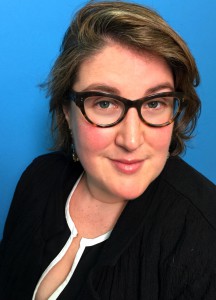 When you became a Casting Director, did you ever think that you’d become a speaker and teaching Masterclasses? How did that evolve?
When you became a Casting Director, did you ever think that you’d become a speaker and teaching Masterclasses? How did that evolve?
I honestly have no idea how it came to be. SAG-AFTRA Foundation asked and I said yes without thinking because I was so flattered. And then, as it sunk in, I was terrified. Did I have anything of value to share? Were there tips that could be helpful? Are there things that actors don’t know that I can explain? I think one of the big benefits of these masterclasses tend to be removing the veil of mystery. I am a firm believer that being honest and transparent is the best approach in this business so when given this opportunity, that’s how I tackled it; my own subjective honest experience and perspective. And hopefully some of what I shared resonated with those in attendance.
How can actors best prepare for a role, especially if they don’t have access to a lot of material or background on the character?
Make choices with what you have. And be specific. The fastest way to lose me in an audition is to start by asking what I’m looking for. I’m looking for someone who makes the most of the material in their hands. I’m very aware that I haven’t been able to share a script and the only info given are the sides and the character breakdown that was released. I’m always available to answer questions if there is a piece of character info that might be helpful to inform choices more specifically. Also look at the creatives involved, their names will likely be on the breakdown.
Seeing their past work can help determine tone of a piece. And if all that fails, look at the body of work of the casting director. We get type cast the same way an actor does. I’d love to work on a comedy someday but no one thinks I’m funny. So if you get an audition from my offices, chances are good that it will likely be more dramatic. At the end of the day, I don’t want to micromanage an actors’ performance where none of their own thoughts are present. I’ll help shape an audition to get it where it needs to be for the creatives, but the joy of acting is making those individual choices and sharing a unique perspective. Sometimes in masterclasses I like to do a little exercise where I’ll give 20 actors the same one line, throw everyone out of the room and have each person come in alone and put the line on tape. We then watch it back as a group. And all 20 generally give a good performance, but no one does it exactly the same. You get 20 unique points of view on the same one line. It’s beautiful. So embrace the info you have and make the choices you can and let your point of view shine through.
Today’s world has headshots as little thumbnails. If an actor has a specific talent, such as they play the guitar, should their headshot be of them playing the guitar, or should it be a standard headshot?
I don’t have a good answer for this – it’s all so subjective. I don’t need to see a guitar in a photo. If I need someone to play guitar (or the role requires someone with a specific talent,) I’ll mention that in the breakdown or on my Instagram post when looking for submissions. And taking the guitar analogy, as part of the audition it will be important to see a snippet of film of that actor playing the guitar. For these thumbnail headshots, I personally want to see the eyes. So much is said through the eyes. And as long as you somewhat resemble the photo (i.e. it’s not 25 years younger than you are currently), I’m happy.
Rejection is a big part of an actor’s journey. What advice do you have for actors dealing with rejection in this industry?
Rejection is the worst. I get rejected too. I’d say try really hard not to take it personally because you have zero idea why you ultimately didn’t get the role. It could be as simple as you had the wrong color eyes and the production didn’t budget for color contacts. But so many times the reason you were not cast is entirely out of your control. It’s okay to be bummed but don’t live in the disappointment. Have hobbies that have nothing to do with this business. Things that bring you joy. The truth is, you will be rejected more times than not – it’s the nature of the career you’ve chosen. But if you have other outlets, it makes the sting less potent and demoralizing.
What advice would you give to actors who are just starting out and looking to make a strong impression during auditions?
Harking back to question #6 – Make choices! There is nothing more exciting to me than an actor coming into a room or sending in a tape where they’ve made a clear and specific choice on the character, the scene, the arc, the tone, etc. It’s the best!
Visit Julie Schubert’s socials:

